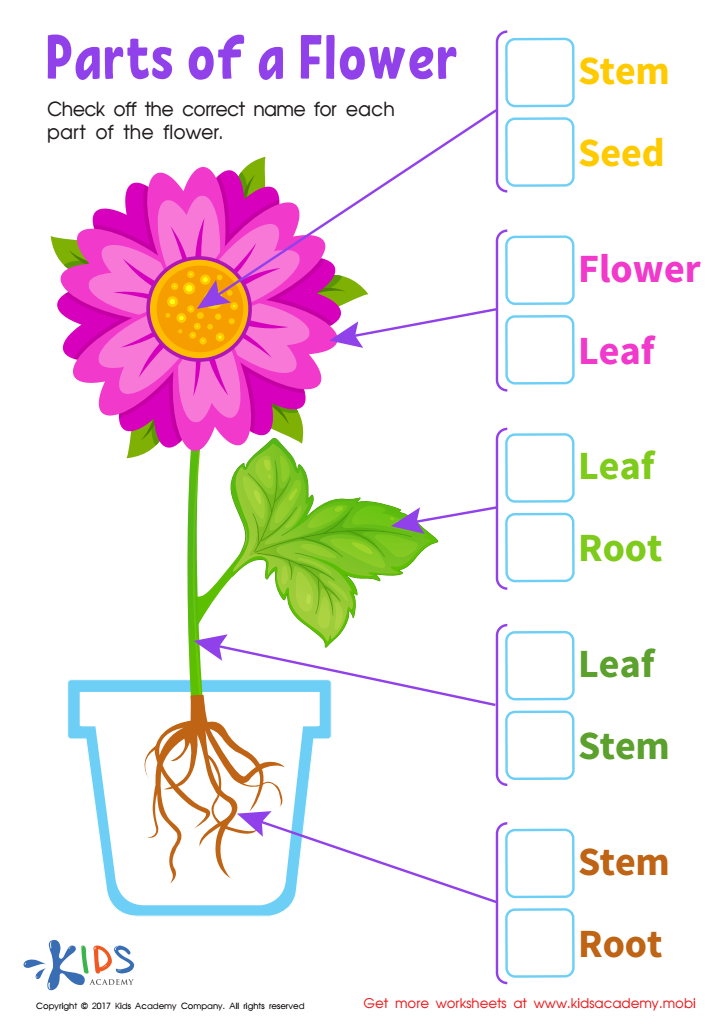Life Science Worksheets for Ages 7-8
3 filtered results
-
From - To
Explore our engaging Life Science Worksheets designed for ages 7-8! These interactive resources help young learners discover the fascinating world around them, enhancing their understanding of plants, animals, ecosystems, and human biology. With vibrant graphics and thought-provoking questions, our worksheets promote curiosity and encourage critical thinking. Ideal for home or classroom use, they support various learning styles through hands-on activities and easy-to-follow instructions. Parents and educators can seamlessly integrate these materials into their teaching plans, making science fun and accessible. Dive into the wonders of life science and inspire your child's love for nature today!


Parts Flower Printable


Herbivores Printable


Carnivores Worksheet
Life Science for ages 7-8 lays the foundation for understanding the natural world, fostering curiosity and critical thinking. At this critical age, children are eager to explore concepts of living organisms, their environments, and the interconnectedness of life. Teaching life science promotes essential scientific skills, such as observation, questioning, and experimentation. These skills are crucial as they will be used throughout their educational journey.
Moreover, engaging in life science education cultivates a sense of stewardship and responsibility for the environment. As children learn about ecosystems, species diversity, and the impact of human activity on nature, they develop an appreciation for protecting wildlife and conserving resources. This instills values that encourage sustainable behaviors from a young age.
Furthermore, integrating life science with hands-on activities enhances learning and retention. Children enjoy interactive experiences, making complex concepts accessible and relatable. Parents and teachers have a unique opportunity to inspire the next generation of scientists, environmentalists, and informed citizens.
Overall, promoting life science curricula not only enriches kids' academic paths but also nurtures informed, responsible individuals who can contribute positively to society and the environment. This investment in early education sets the stage for lifelong learning and environmental awareness.

 Assign to My Students
Assign to My Students









.jpg)











